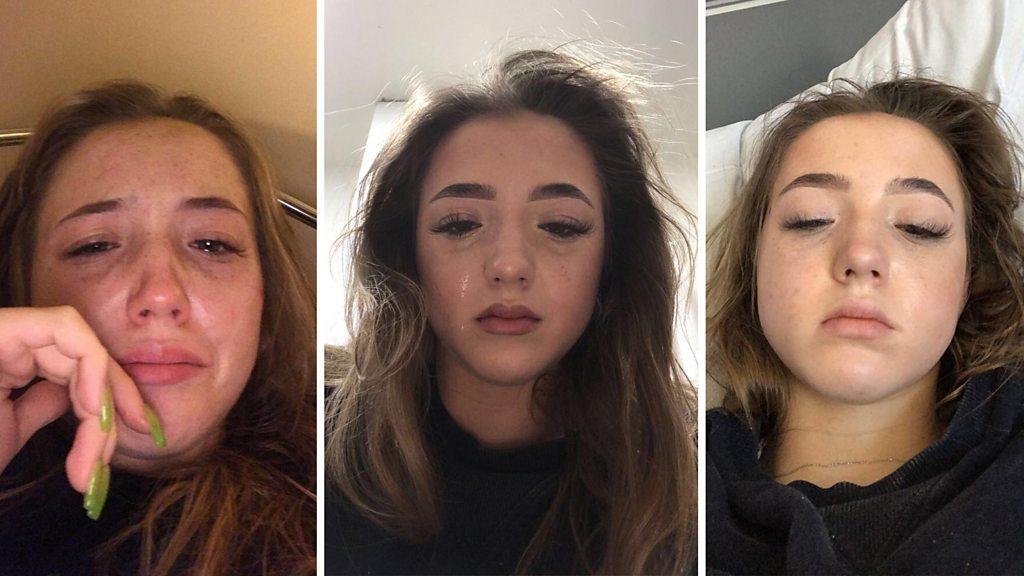'When I want to talk, I sing in my head': FND sufferer on rare condition
- Published
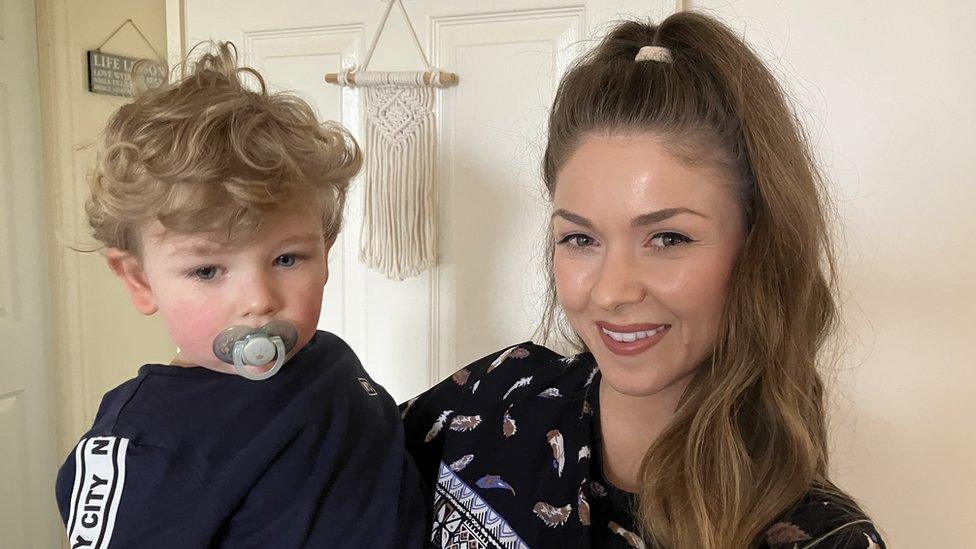
Leanne Fraser said she could not look after baby Henry alone for months, due to the unpredictability of her seizures
When Leanne Fraser gave birth to her son, Henry, she never imagined she would miss the first few days of his life.
The first-time mum from Malton in North Yorkshire had been in hospital for an emergency c-section, when, following the birth, she started to feel "excruciating" pain in her head.
Although she could hear everything going on, she lost the ability to speak and was eventually transferred to the stroke ward.
What Leanne thought was a "bad reaction to anaesthetic" turned out to be functional neurological disorder (FND), a rare condition that has now changed her life for more than two years.
Preparing to mark FND Awareness Day 2024 on Monday 25 March, Leanne, now 31, told BBC Radio York: "I went into hospital to have my baby boy and I came out as a completely different person."
"It was terrifying. I'd just had my little baby boy and then I was away from him," she added.
"I missed his first few days and I knew how precious they were. You can't get them back."
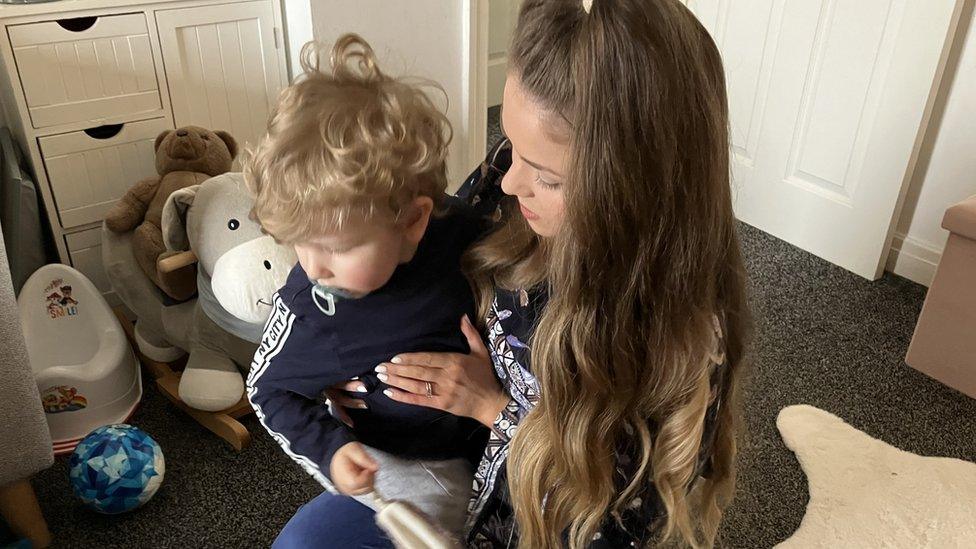
Leanne missed the first few days of baby Henry's life due to excruciating pain caused by FND
Today, due to FND, Leanne faces memory loss, tremors, fatigue and sometimes facial spasms on a regular basis.
"I still have seizures, which are during the night, and they happen once or twice a week," she said.
The seizures used to occur more often and in the daytime, she said, but the unpredictable nature of FND meant they could easily come back.
"They were extremely frightening. I would just drop down in the middle of a conversation and sometimes injure myself and knock my head."
During the seizures, she would become unconscious and "extremely vulnerable", meaning that looking after Henry alone was not possible for months.
The memory loss that followed her seizures could also "wipe a whole day out", Leanne said.
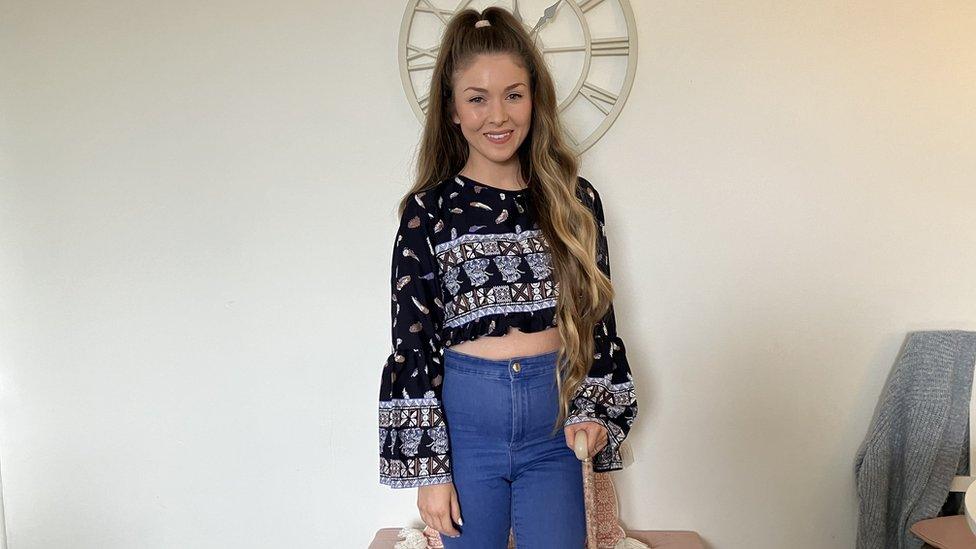
Leanne now uses a walking aid for around the house, but has a wheelchair for days out
Leanne said she was not aware of FND before she was diagnosed by a neurologist, and even health care professionals struggle to diagnose the condition.
"If you imagine your body as a computer, the hardware is fine, so your body on scans looks to be intact with no damage," she explained.
"But it's a problem with your software, so the programme that's running on the computer isn't working properly."
Leanne's diagnosis and the symptoms that came with it meant her confidence was shattered. She developed a stutter and lost a lot of her independence.
She said: "The speech, for me, was just such a massive shock to the system.
"I've worked from the age of 17 and in every job I've had, I always had perfect speech.
"I used to love spending time with friends, making jokes and joining in, but when my speech became so stuttered, I just stopped trying to join in.
"By the time I'd said it, the moment had passed - and that knocked my confidence."
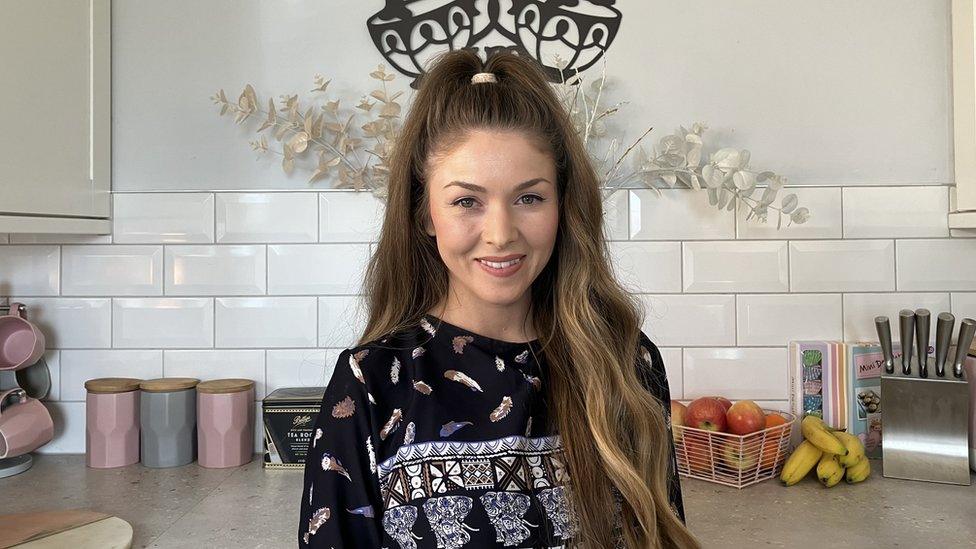
Leanne says she tries to look at life with positivity, despite the challenges she faces due to FND
However, Leanne said she did finally reach a turning point with her speech, which she playfully credited to singer Peter Andre.
"One day, Henry was listening to his songs and Peter Andre's Mysterious Girl came on.
"I started singing it and realised my speech wasn't as stuttered.
"A few hours later, I was singing it in my head and I said something to my husband and it was perfect.
"Now, anytime I want to talk, I sing in my head, so at the minute, I'm singing a song and talking to you.
"It works. I don't know why, but it just works."
'Silver lining'
However, in terms of her movement, things have deteriorated for Leanne.
She now needs a walking aid to move around her home and a wheelchair when she is out and about.
"I am grateful to have the wheelchair, but sometimes I'm sat in it and wish I could run around with my little boy," she admitted.
"We go for days out sometimes and it just hurts my heart that I can't join in."
The support of her husband and her parents means Leanne can be the best mum possible for Henry, but she said she recognised that other people with FND would not have the same support system.
"At the start, I did think I came out a completely different person, but I now think I went into hospital as me and I came out as a mum to a gorgeous and healthy baby boy," Leanne said.
"My whole perspective has changed, I try every day to look for positives and a silver lining."
Getting ready for FND Awareness Day, Leanne said she hoped the condition would become "better recognised and understood".
"Hopefully, one day, there won't be as much pain and the seizures will have stopped completely," she added.

Follow BBC Yorkshire on Facebook, external, X (formerly Twitter), external and Instagram, external. Send your story ideas to yorkslincs.news@bbc.co.uk, external.
Related topics
- Published6 April 2021
